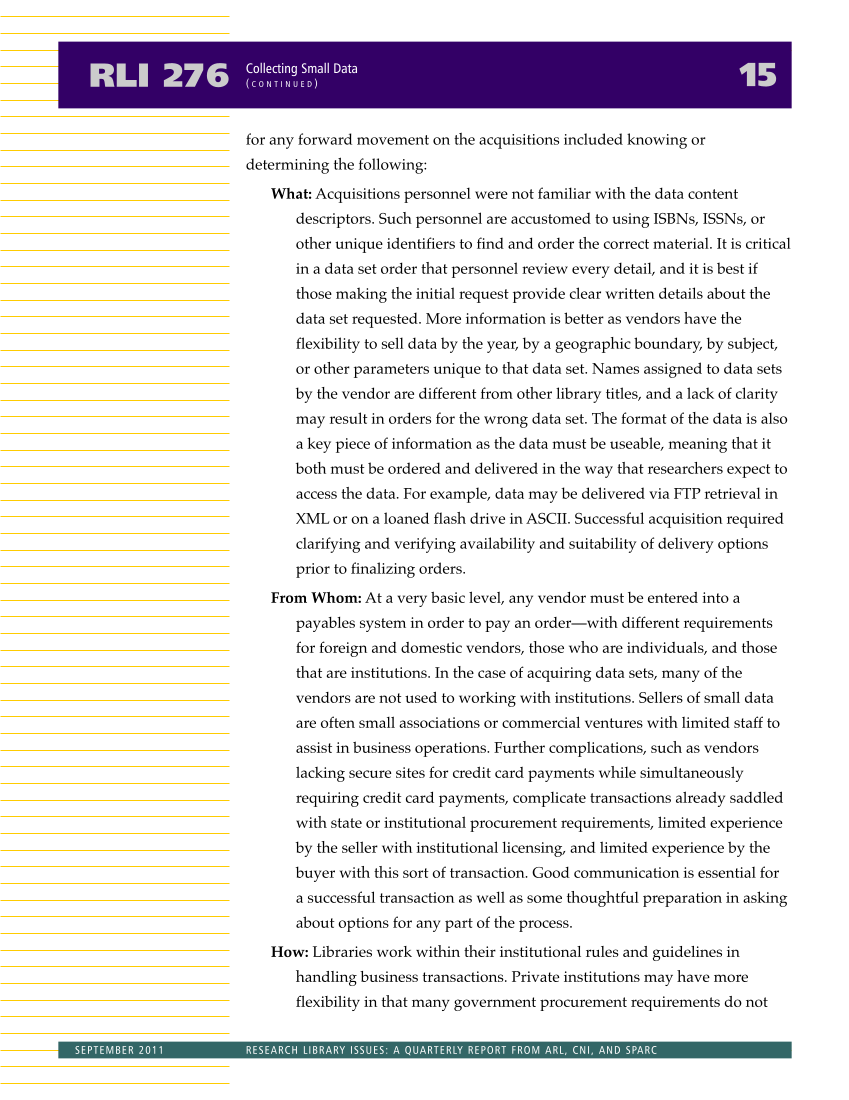for any forward movement on the acquisitions included knowing or determining the following: What: Acquisitions personnel were not familiar with the data content descriptors. Such personnel are accustomed to using ISBNs, ISSNs, or other unique identifiers to find and order the correct material. It is critical in a data set order that personnel review every detail, and it is best if those making the initial request provide clear written details about the data set requested. More information is better as vendors have the flexibility to sell data by the year, by a geographic boundary, by subject, or other parameters unique to that data set. Names assigned to data sets by the vendor are different from other library titles, and a lack of clarity may result in orders for the wrong data set. The format of the data is also a key piece of information as the data must be useable, meaning that it both must be ordered and delivered in the way that researchers expect to access the data. For example, data may be delivered via FTP retrieval in XML or on a loaned flash drive in ASCII. Successful acquisition required clarifying and verifying availability and suitability of delivery options prior to finalizing orders. From Whom: At a very basic level, any vendor must be entered into a payables system in order to pay an order—with different requirements for foreign and domestic vendors, those who are individuals, and those that are institutions. In the case of acquiring data sets, many of the vendors are not used to working with institutions. Sellers of small data are often small associations or commercial ventures with limited staff to assist in business operations. Further complications, such as vendors lacking secure sites for credit card payments while simultaneously requiring credit card payments, complicate transactions already saddled with state or institutional procurement requirements, limited experience by the seller with institutional licensing, and limited experience by the buyer with this sort of transaction. Good communication is essential for a successful transaction as well as some thoughtful preparation in asking about options for any part of the process. How: Libraries work within their institutional rules and guidelines in handling business transactions. Private institutions may have more flexibility in that many government procurement requirements do not RLI 276 15 Collecting Small Data ( C O N T I N U E D ) SEPTEMBER 2011 RESEARCH LIBRARY ISSUES: A QUARTERLY REPORT FROM ARL, CNI, AND SPARC


































